Publications
Publications from 2015
-
2025
-

The Dutch Education Council calls on the Minister of Education to improve the access to secondary education and secondary vocational education for young people growing up in poverty. School costs in these education sectors are high, and the Council advises the government and schools to remove these financial barriers. Every person in the Netherlands who is of compulsory school age or required to obtain a basic qualification must be able to access free education. Improvements are also needed in the education and support offered to young people growing up in poverty. Schools cannot do this on their own; the Council calls on local authorities to shoulder their responsibility.
Read the summary of the report Poverty and education
-
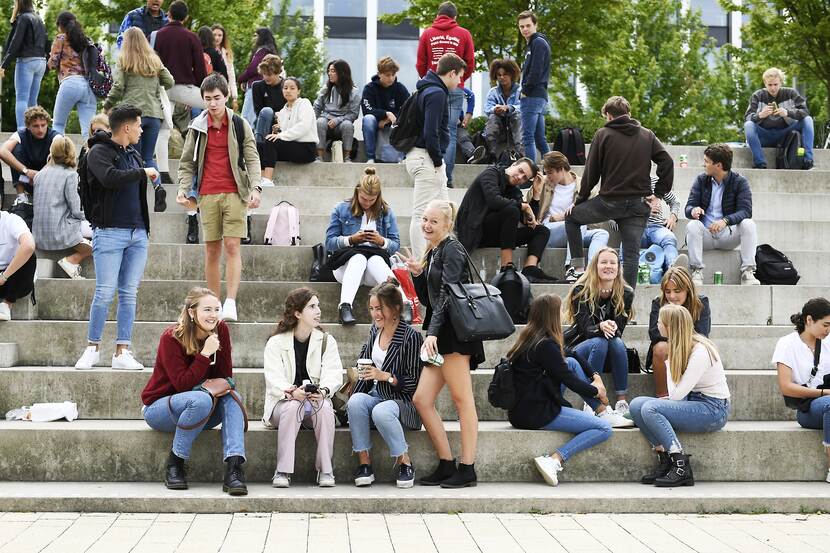
The Dutch Education Council has issued a warning to the Minister of Education concerning the combination of falling student numbers, funding cuts and the proposed introduction of the Balanced Internationalisation bill (Wet internationalisering in balans, WIB). The Council believes that this combination could have an adverse impact on vocational, higher professional and university education. The minister has overall responsibility for the entire system of education provision. The Council advises the minister to maintain oversight of the total education provision, to reflect on it periodically, and where necessary to adopt a customised approach in order to maintain adequate education provision. The Council does not see falling student numbers as a reason for the government to make radical changes to education funding and governance.
Read the summary of Falling student numbers
-

Young people in young offender institutions (YOI) are entitled to receive an education. Receiving that education is of great importance both for themselves and for society as a whole. There are continuing concerns about the way education is organised and positioned within young offender institutions in the Netherlands. Additionally, the increase in the average age of YOI residents places different demands on education than previously.
Read the summary of the report Education in young offender institutions
-

Good teachers are crucial for good education. The government has a duty under the Dutch Constitution to guarantee the competence of teachers in training, in collaboration with teacher training colleges and education professionals. That guarantee is currently not being met fully. The Education Council advises the Minister of Education to ensure the adequacy of the legal frameworks intended to provide this guarantee. The statutory competence requirements must be sufficiently broad and must define the core elements of being a teacher in unambiguous terms.
Read the summary of the report Better guarantees of competence.
-
-
2024
-
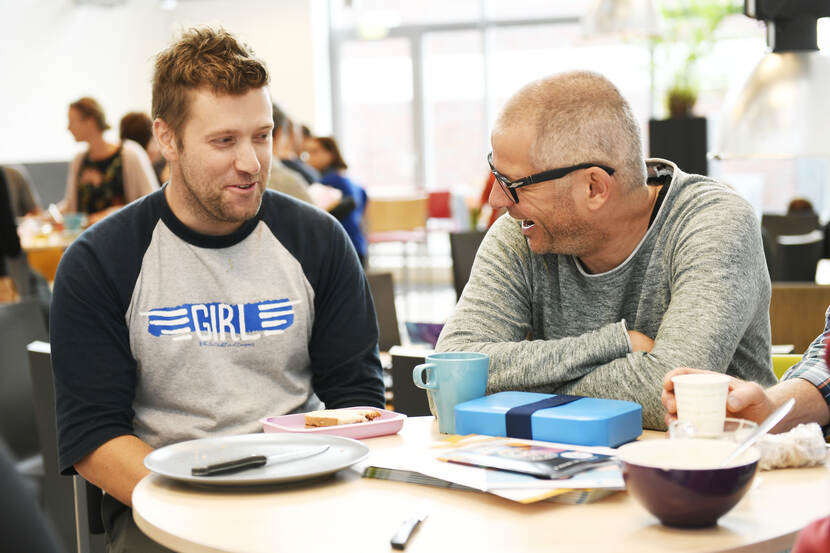
To be able to perform their jobs well, teachers need to feel they have a degree of control; not just over what happens in the classroom and the school, but also regarding education policy at the school, on the school board and nationally. Giving teachers a voice is essential in engendering their support and ensuring the practicability and quality of policy at all levels. At present, teachers are by no means always given that voice.
Read the summary of the report A strong voice
-
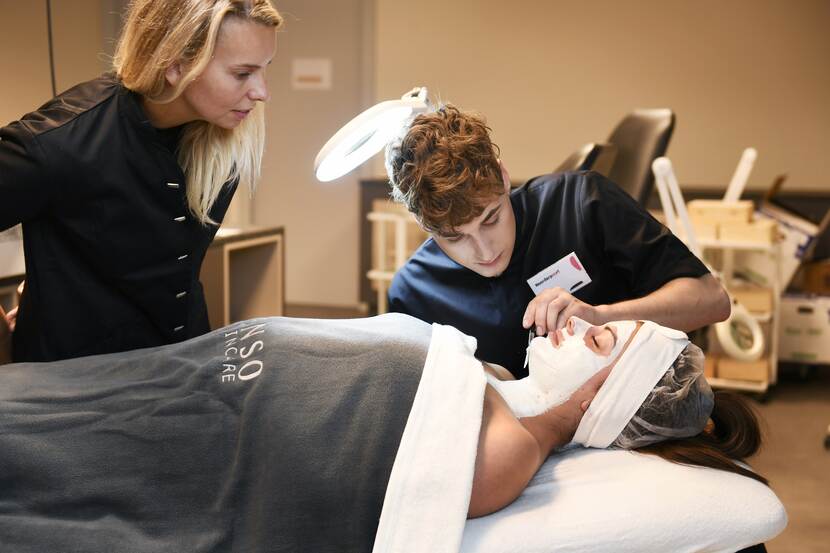
This Work Programme, which is updated annually, briefly describes the advisory reports and studies that the Education Council will be working on over the next two years.
Read the Work Programme 2025-2026
-

Work-based learning is an essential part of vocational education. However, the current labour market shortage is leading to a lack of placements and threatening the quality of work-based training. The Dutch Education Council therefore recommends that vocational training providers and employers make conscious and judicious use of work-based learning, working together to determine which educational activities should take place within a workplace setting and identify where alternatives might also work well. It is also vital to safeguard the quality of work-based learning by drawing up a framework of national standards.
Read the summary of the report Work-based learning under pressure
-
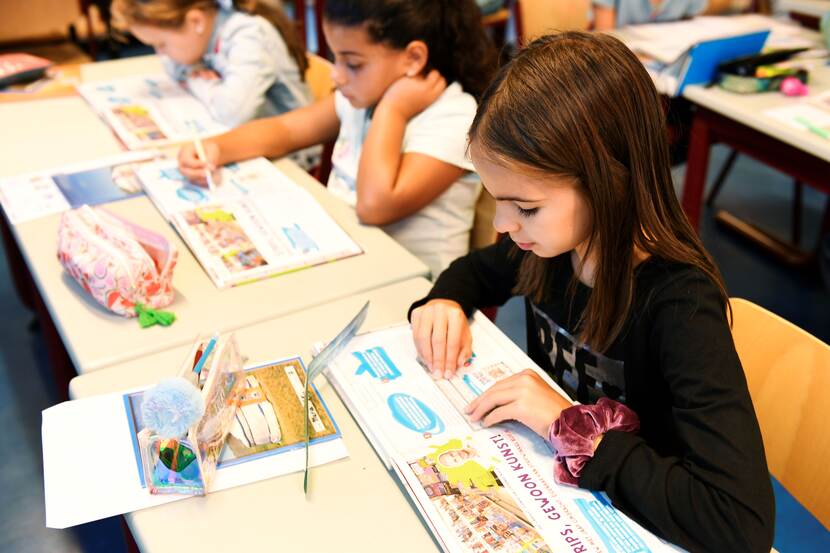
Education is an investment in the earning capacity of the individual and of society, generates wide-ranging returns and is a mark of civilisation. The Dutch Education Council advises government and parliament to base decisions on education within the national budget on these three considerations. Currently, spending on education is primarily seen as a cost with no corresponding return. An understanding of both the costs and the returns will create a better foundation for political decisions on education spending.
Read the summary of the report Education as investment.
-
-
2023
-
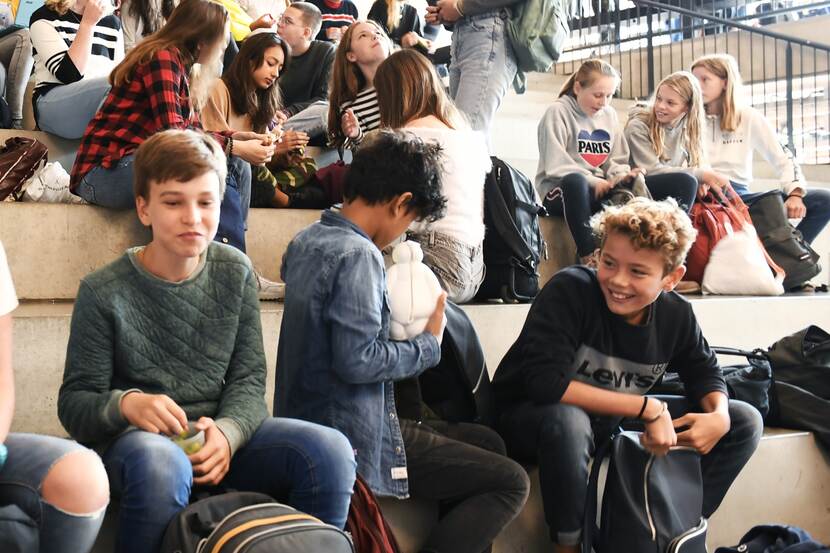
School boards form an indispensable hub within the Dutch education system, acting as a link between schools, government and the local community. However, inconsistency in the approach taken by government, as well as differing, often conflicting expectations and perceptions regarding the role and purpose of school boards, make it difficult for them to fulfil their function adequately. At the same time, at an internal level, not all school boards have strong ties with their school or schools, while externally they do not all collaborate with other boards even where there is a need for this. To clarify and strengthen the position and relationships of school boards within the education system, the Education Council recommends taking subsidiarity and public interests as a consistent guideline. This is an area where both government and school boards need to do better.
Read the summary of the report Clear positioning for school boards.
-

The Dutch Education Council advises the government to guarantee and strengthen early childhood education (ECE). The Council believes that properly functioning ECE forms an indispensable link in securing more equal educational opportunities for children aged between 2.5 and six years who are at risk of educational disadvantage. The Council calls for greater alignment between preschool facilities and primary schools by developing national aims for play and learning provision within ECE and striving for better collaboration and more professionalisation of preschool and primary school teachers.
-

Despite thirty years of policy and other efforts to attract and retain teaching staff, the teacher shortages in the Netherlands persist. The demand for teachers remains high, and the shortages are proving stubborn. The Dutch Minister for Primary and Secondary Education asked the Dutch Education Council to explore ways in which education can be provided in a context of the continuing shortage of teachers.
Read the summary of the exploration Scarcity grinds
-
This Work Programme, which is updated annually, briefly describes the advisory reports and studies that the Education Council will be working on over the next two years.
-

Engage seriously with European education policy: that is the advice of the Dutch Education Council to the government. The present ‘wait-and-see’ approach by the Netherlands fails to acknowledge the growing influence of Europe on education. The Council advises Dutch education ministers to work with education professionals to develop a strategic agenda, which offers clarity on the Dutch ambitions for European education policy. This will provide focus and a framework for education professionals and government, enable the Netherlands to respond more effectively to the opportunities and risks of European education policy and contribute to that policy.
Read the report Active in Europe
-
-
2022
-

To ensure good and sustained quality of language and maths teaching, the Dutch Education Council advises a comprehensive and structural focus on these subjects from stakeholders including the government, school administrators, school heads and teachers. The Council advises central government to formulate clear goals for language and mathematics teaching as part of the national attainment targets and standards (core attainment targets, examination standards, qualification requirements and benchmarks) and to monitor the achievement of those goals on an ongoing basis.
Read the summary of the report Language and mathematics in the spotlight
-

The study showed that use of intelligent technology offers ample opportunities for enriching education, for example promoting autonomous learning, offering more inclusive education and enhancing motivation. On the other hand, the use of intelligent technology can also make education less appealing, with reduced personal contact, discouragement of initiative and undesirable forms of standardisation, monitoring, differentiation and profiling.
Read the summary of the report Use of intelligent technology in education
-
-
2021
-

The growth in private education provision and the intermingling of state and private provision are putting increasing pressure on the public character of Dutch education. The Education Council recommends that the government and schools step up the efforts to protect the public character of education, so that everything that is offered at a state-funded school is (freely) available to all students, whilst guaranteeing educational quality and the ability of education professionals to exert a degree of control.
Read the summery of the report Emphasising the public character of education
-
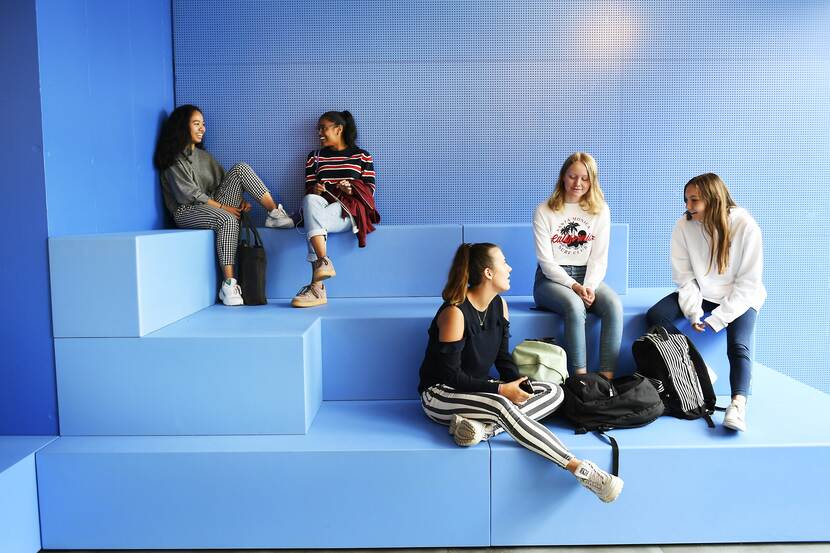
Make clear what must form part of education, and what is and is not permitted in terms of freedom of education; do this within the normative framework of the democratic society. That is the advice given by the Dutch Education Council on Article 23 of the Dutch Constitution in its report ‘Set limits, allow freedom’ (Grenzen stellen, ruimte laten).
Read the summary of the report Set limits, allow freedom
-
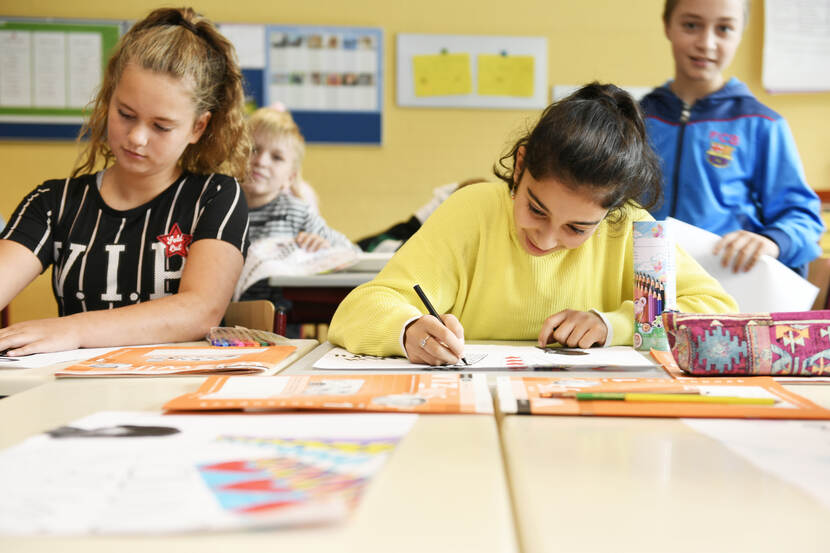
Every pupil must be given the opportunity to develop, learn and obtain a qualification to the utmost of their ability. That applies equally for gifted pupils, precocious and fast learners, as well as for children who do not learn so fast or so easily, and for late-bloomers. However, the early selection and external differentiation into different school types that characterise the Dutch education system are putting a strain on equal educational opportunity.
Read the summary of the report Select later, differentiate better
-
-
2020
-

The education community has entered a long era of uncertainty in which developments are highly dynamic and unpredictable. As the pandemic enters a new stage, a more strategic and coherent way of conducting government policies is called for. The government’s responsibility for a well-functioning education as a whole should serve as a starting point. It is essential that the government keeps a close eye on what is happening within the educational field and which approaches and interventions turn out to be effective. Therefore, the government should initiate research and knowledge dissemination.
Read the summary of the report Good prospects for young generations
-

The education system experiences unprecedented times. The Education Council stresses the need to focus attention on acute issues and to acknowledge that all else is of later concern. The Council also states the importance of having realistic expectations of schools; especially since schools already suffered from severe workloads and staff shortages before the pandemic and now face further challenges as staff gets ill or is under increased stress.
Read the summary of the report Measures to overcome consequences of the coronavirus pandemic for education
-
-
2019
-

The Dutch education system is surrounded by a ‘shell’ of service-providers who support education in many different ways, for example teaching method developers, test developers, advisers, trainers, project leaders and researchers. These educational services, and the relationship between services, government and education practice, are currently changing. The government is looking to redefine its role and is keen to know how educational services can contribute to sustainable quality and innovation in education practice.
Read the report Pulling together for the school
-

Young people in the Netherlands are reading less and less often and with less and less enjoyment. This is leading to a decline in their reading skills. That in turn has an impact on their functioning at school and in society, and ultimately also on the functioning of Dutch society as a whole.
Read the summary of the report Let's read! A call for a reading offensive.
-

Dutch education faces greater challenges today than for many years. Social changes with lasting impact are demanding a great deal of education and also have consequences for the education system. To guide the thinking and discussion about necessary reforms, the Council has formulated five ‘starting points’, which bring together a number of the Council’s recommendations.
Read the summary of the report Disproportional differentiation in the Dutch education system
-
-
2018
-
The Dutch Minister for Primary and Secondary Education and Media asked the Education Council to advise on the process of curriculum innovation. In formulating its advice, the Council examined how curriculum innovation can play a meaningful role in the quality of education. With this in mind, the Council focused on the following question: How can curriculum innovation be organised in such a way that it makes a lasting contribution to educational quality?
Read the summary of the report Curriculum Innovation.
-
The teaching profession is receiving much attention in the Netherlands at the moment, both from policymakers and in the media. That attention is justified, because teachers are crucial for good education. The profession is under pressure, however, partly due to growing shortages of teachers. The Dutch Parliament asked the Education Council of the Netherlands to investigate how changes to the training and employment structure might contribute to ensuring that there are sufficient, good-quality teachers.
Read the summary of the report Broadening the scope for teachers
-
The Dutch House of Representatives requested the Education Council to produce a report on the way in which the government currently funds education in the Netherlands and the mechanisms available to education establishments to account for their spending of these public funds. The request was prompted by discussions about funding amounts and the funding system, as well as about the efficiency and accountability of educational spending. In this report the Council makes recommendations on these four themes.
Read the summary of the report Accountability
-
School heads play a key role in the quality of education. Their role has changed over time, with the emphasis increasingly coming to lie on educational development and improvement and providing a good working and learning environment for teaching staff. Collaboration with parties outside the school has also become increasingly important. In their day-to-day practice, school heads are having to devote more attention to leadership and less time to managerial tasks. To be able to do this, school heads must be empowered to think and act strategically.
Read the summary of the report Empowering school heads.
-
-
2017
-
Formally, Dutch municipalities play a limited role in education and their role has been restricted to a limited number of tasks set by Acts of Parliament. Education policies are a concern of central government together with more or less autonomous school boards. Most schools in the Netherlands are privately run and most schools run on behalf of public authorities have been removed from direct control by municipalities. In recent years, however, both local authorities and schools have acquired wider responsibilities regarding the raising and development of children and adolescents.
Read the summary of the report Bringing local and regional policies up-to-date.
-
The arguments in favour of student-centred education are not new. They are based on the premise that education should be more closely geared to the needs of individuals. The Dutch Ministry of Education, Culture and Science has asked the Education Council of the Netherlands to provide a report on this topic. The main question addressed by the Council was: What does it mean to put the student at the centre of the educational process and where does this ambition encounter limits?
Read the summary of the report All about the student?
-
The non-stop development of information and communication technology (ICT) means that an increasing number of products and services are being delivered in digital form. Education is attempting to keep pace with these developments, but is still casting around to find the appropriate content, form and role. In many cases there is no clear vision of the relationship between education and ICT, resulting in wide variation in the way schools shape digitalisation and the extent to which they contribute to digital developments and innovations.
Read the summary of the report Thoughtful digitalisation.
-
Wars in various parts of the world have led to an increase in the number of refugees coming to the Netherlands in recent years. Their prospects of finding paid work and participating fully in Dutch society are poor. In this report, the Education Council of the Netherlands considers how education could provide more of a helping hand for refugees, with the primary focus on children and adults without a basic qualification.
Read the summary of the report Refugees and education.
-
-
2016
-
Ensuring a good match between education and the labour market demands constant attention. Developments in society and on the labour market place heavy demands on people’s flexibility and learning ability. The position of people with a secondary-level education is particularly worrying in terms of their labour market position and their low participation in post-initial education. With this in mind, in this report the Council focuses on the ‘middle segment’, i.e. those with a senior secondary vocational (mbo) qualification level 2 or higher.
Read the summary of the report Craftmanship in continuous development.
-
The professional quality and expertise of teachers both creates and demands a certain professional space. This professional space does not come free of obligation or duty, but must at all times be geared to benefiting educational quality. Notwithstanding policy aimed at optimising this professional space, there are signs that it is being eroded by factors such as teachers’ sense of being under too much pressure of work and having too little say. The central question addressed in this report is therefore: How can an optimum professional space for teachers be created, utilised and justified?
Read the summary of the report A new perspective on professional space in education.
-
Children and adolescents are growing up in a globalising society. People increasingly encounter information in different languages and they meet people from foreign countries and from diverse backgrounds in their daily lives. Increasing numbers of people engage in social environments in which there are different expectations on how to behave. Events in one’s own town, village, or country can increasingly not be comprehended without knowledge of the world beyond.
Read the summary of the report Internationalising with ambition.
-
-
2015
-
The education system is increasingly expected to take account of the differences between school pupils. Schools and teachers can do this in very different ways. The approaches taken by primary and secondary schools must respect the statutory frameworks, which do allow a certain amount of variety. For instance, primary school pupils can perform their final assessments before the eighth school year, and secondary school pupils can sit exams in extra subjects, complete subjects one or two years earlier, or sit exams at a higher level for one or more subjects. In recent years, various proposals have been made to make more variety possible in final assessments.
Read the summary of the report Tailored approaches within the statutory frameworks: final assessment as a benchmark for primary and secondary education.
-
In recent decades, hard work has gone into improving the quality of higher education as well as the systems used to improve quality and enable quality assurance. Important examples of this include the further development of the accreditation system and the associated quality assessments, the introduction of the institutional review, agreement of performance targets with individual institutions, and the strengthening of the position of the examinations committee, study programme committee and the supervisory board in the design process of the quality assurance mechanism.
Read the summary of the report Quality in higher education.
-
The position of preparatory secondary vocational education (VMBO) in the Dutch education system is at risk of being undermined. The decline in numbers of pupils makes it difficult to organise good quality education and there are concerns about the appeal of VMBO education. Its appeal suffers from its complex structure and its negative image. The following question was submitted by the Dutch House of Representatives: How can the position of VMBO education within the Dutch education system be strengthened?
Read the summary of the report Distinctive preparatory secondary vocational education (VMBO) with strong end-to-end learning pathways
-